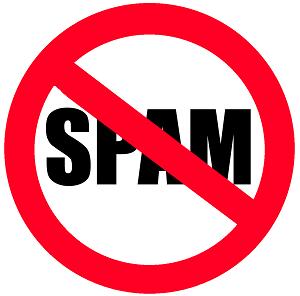Last updated on February 28th, 2020 at 06:42 pm
Google has some degree of trust or distrust  of the sites it crawls, and Google’s degree of trust with a site can go up (highly credible) or down (spam site) based on the factors revealed here.
of the sites it crawls, and Google’s degree of trust with a site can go up (highly credible) or down (spam site) based on the factors revealed here.
Exact match domain names
Domain names that are an exact match for a keyword phrase can rank well in Google, but before you run off and register an exact match domain name, there is a down side – unless you take the time to provide great content and build links that lend credibility to the site, it will likely rank only for the exact phrase. Even if you do proper SEO, it’s possible that your site will never rank in the top spot for your keyword especially if your competitors are brand names (more on that later).
Not long ago I was talking with some entrepreneurs, one of them claimed to have his own SEO agency, and when I mentioned this down side to exact match domain names he piped up, “That’s why we setup up hundreds of exact match domain names for a client.” I couldn’t help but laugh at this cumbersome strategy, because as I learned, he didn’t seem to understand how to do link building to get the same effect, with less work and less risk of being labeled a spam site by Google.
In September, Google came out with the EMD algo update which seemed to target exact match domain sites that had thin or low quality content.
So be careful, but exact match domains can be a way to build trust with G.
Links from highly trusted editorial sites
Links to your domain from highly trusted editorial sites like yahoo, wikipedia, nytimes.com, etc. builds up a level of trust with Google about your domain (more about editorial sites later).
In addition to links from known editorial sites that G trusts, links from these build trust as well:
- Professional association sites
- Editorial sites within your industry
- Relevant blogs with a large following
- Well-known brand sites that are topically relevant
- News outlet sites (local newspaper/radio/tv)
Links to speculative sites break trust
Conversely, links from your site to highly speculative sites, like spam sites, will not help with your quest to earn the trust of Google. If your site or sites it links to violate Google’s quality guidelines, you might be a spam site. Google’s quality guidelines – basic principles:
- Make pages primarily for users, not for search engines and don’t deceive your users or present different content to search engines than you display to users, which is commonly referred to as “cloaking.”
- Avoid tricks intended to improve search engine rankings. A good rule of thumb is to ask, “Does this help my users? Would I do this if search engines didn’t exist?”
- Don’t participate in link schemes designed to increase your site’s ranking.
Domain registration details reveal trust
How speculative or trustworthy are the domain names that have been registered by the same entity? It’s important to recognize that Google has been a domain name registrar since 2003 and yet they do not sell domain registrations. But, Google does have access to all domain name registration info. What could the G be up to?
They probably want to gauge domain trust based on a few simple facts, such as, what percentage of domain name registrations by this company or individual are spam sites? If Google trusts the company or individual who registers the domain name, then it’s likely they will trust future domain names registered, resulting in almost immediate domain trust for those sites. But, if G doesn’t trust the company or individual registering domain names, well need I say more? That’d be a spam site.
Editorial links
Editorial links are not paid for, not asked for and not traded for. These are links a site organically attracts because it is producing good content and marketing that gets in social media sites like twitter or Facebook, and social bookmarking sites like Reddit or Stumbleupon and could be the result of linkbaiting, content syndication and/or public relations.
Why are editorial links better than other types of links for SEO? Loren Baker of Search Engine Journal says:
“It’s an old push/pull philosophy, if people link to you with intention of rewarding or citing your original content, then those links are more trusted. If you link to yourself by paying others and promoting your own content on sites like article distribution portals, those links are not going to be worth as much.”
Editorial links are not easy to duplicate and that makes it difficult for competitors to simply do the same to outrank your site.
G really loves these kind of links and wishes the world of the web had only these so G’s engineers could sit in a circle and sing Kumbaya a lot more.
Brand names have a ranking advantage
Some time ago, Google’s former CEO, Eric Schmidt, shared his views about how much Google trusts the Internet: “The internet is fast becoming a ‘cesspool’ where false information thrives”
“Brands are the solution, not the problem,” Mr. Schmidt said. “Brands are how you sort out the cesspool.”
“Brand affinity is clearly hard wired,” he said. “It is so fundamental to human existence that it’s not going away. It must have a genetic component.”
That was Google’s position four years ago and I don’t think it has changed much today. What does this mean if you want to gain Google’s trust? First of all, do not assume that your new site you just launched is on G’s radar; rather, assume that it’s just another site in the world wide “cesspool.”
Next, earn G’s trust by understanding and following G’s quality guidelines, especially as you attempt to gain editorial links to your site. As you gain G’s trust with editorial links, it will open the door for other link building opportunities.
Develop your brand until it becomes a frequently used search term. At least then, G knows you are a legit business with better things to do than exploit loopholes in their algo.
Now to those who know you have broken trust with G, it’s time to clean up what you can – if you know what that is, but please don’t start guessing – you’re liable to shoot yourself in the foot and no one really enjoys cleaning up a compounded mess like that, but that is part of what some of us SEO pros do.
Anyway, after tidying up a bit, do some of the things I’ve outlined here to begin building trust again with G and before long G will be singing Kumbaya to you as well.

4 replies to "How To Build And Break Your Site’s Trust With Google"
Hi Tom,
Appreciate the tips on link building. Good stuff here. Here’s to hoping my blog gets linked on a well established brand site. 🙂
Thanks again,
DJ
Hi DJ,
Glad you found this post. I do hope your blog gets linked on a fine branded site, but, as you may know, hope is not a strategy. Good luck tho.
Hey Tom, great post. There have always been easy ways to jump in the rankings by manipulating loopholes (exact match domains, tons of links from article directories or user profiles) but in the end those shortcuts are a dead end. Better to do things the right way from the start…it may take a little longer to reach the top but once you do it will be a lot harder for someone to knock you off.
Hi Mike, thanks, sounds like you know first hand what I’m talking about here.